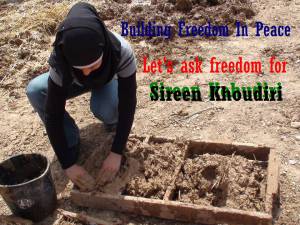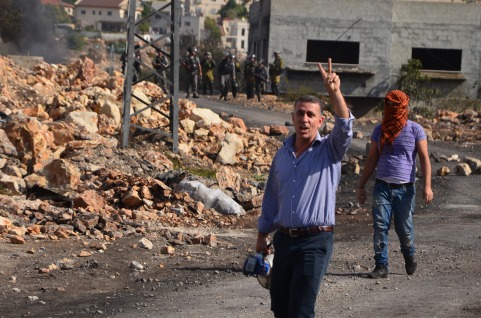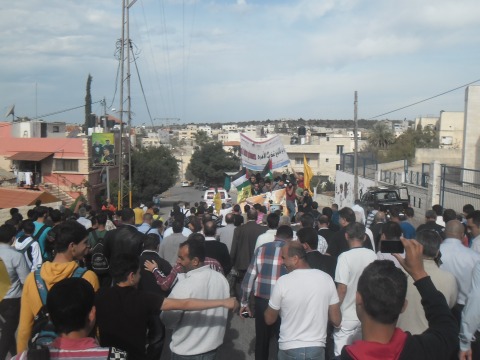Tag: Night Raid
-
UPDATED: Palestinian activist arrested in night raid in Nablus
07th January 2014 | International Solidarity Movement, Nablus Team | Nablus, Occupied Palestine Updated 10th January: Sireen Khudairi was released at 17:15 on the 8th of January. Sireen was brought inside Salem Court at 10:30am after being made to stand outside for an hour with her hands and feet shackled and without a jacket. Once brought into the courtroom…
-
UPDATED: Murad Eshtewi, head of the Popular Committee of Kafr Qaddum, has been arrested
21st December 2013 | International Solidarity Movement, Nablus Team | Kafr Qaddum, Occupied Palestine Second Update 24th December: A military judge has ruled that Murad Eshtewi will be released from prison with a 7000 NIS bail. Nery Ramati, Murad’s lawyer, argued that it was unreasonable to continue to hold Murad for interrogation as he had not been…
-
Demonstration against Israeli forces as invasions and arrests increase in Azzoun
28th November 2013 | International Solidarity Movement, Nablus Team | Azzoun, Occupied Palestine Yesterday afternoon in Azzoun village, there was a demonstration attended by more than 250 people. This protest was against the Israeli forces’ continuing night invasions, arrests, and their treatment of Palestinian prisoners. The demonstration began in the center of Azzoun at noon, hundreds of…



